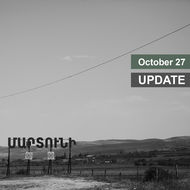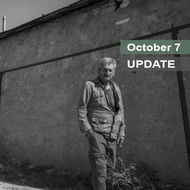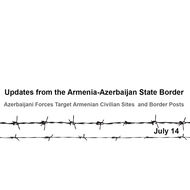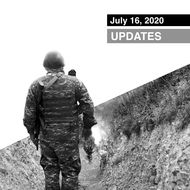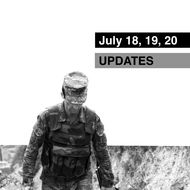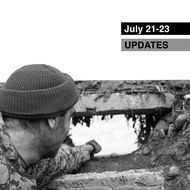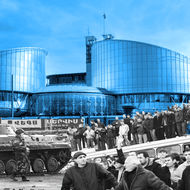Search articles
Search results for
Updates From Artsakh: Thirty Days of War
A month has passed since Azerbaijani Armed Forces launched a large-scale attack on Artsakh. To date, over 1000 Armenian servicemen have been killed, countless wounded while civilian settlements continue to be bombarded. Here is a chronology of official updates.
Updates From Artsakh: Unrelenting Battles Continue
Now in its eleventh day, the Artsakh War is proving to be one of the fiercest, bloodiest battles the region has seen since the collapse of the Soviet Union. Here is a chronology of official updates.
Updates from the Armenia-Azerbaijan State Border
In a third day of deadly fighting along the Armenia-Azerbaijan international border, four Armenian soldiers are killed; a number of border villages continue to sustain Azerbaijani fire; cyberattack targets Armenian government and media websites; Armenian Air Defense Units shoot down an Azerbaijani drone and more.
Updates From the Armenia-Azerbaijan State Border: Ceasefire Breaks
Using large-caliber artillery, Azerbaijani Special Forces launched an attack early this morning on Armenian border posts breaking the fragile ceasefire. After being forced to retreat, they began shelling Armenian border villages.
Updates From the Armenia-Azerbaijan State Border: Relative Calm
After three days of intensive fighting, the situation at the Armenian-Azerbaijani state border has been relatively calm; medals posthumously awarded to four fallen Armenian servicemen; Su-30SM fighter jets to be on permanent duty to ensure Armenia’s air space is inviolable; injured soldiers and families of killed soldiers to receive compensation and more.
Updates from the Armenia-Azerbaijani Border: From Reconstruction to Comprehensive Development
Over the last several days, the situation on the state border seems to have entered a period of relative calm. Moving beyond repair of damaged infrastructure and residential homes, more comprehensive development projects to be implemented in Tavush.
Updates from the Armenia-Azerbaijani Border: Uneasy Calm
Residents of the border villages and towns in the Tavush region are trying to return to their normal routine as the situation at the state border seems to have stabilized. However, for now, it is an uneasy calm.
Updates From the Armenian-Azerbaijan State Border: July 21-23
A soldier who was critically injured during clashes at the Armenia-Azerbaijan state border has died, bringing the death toll to five; Pashinyan says the right of the people of Artsakh to self-determination, the security of Armenia and Artsakh are not subject to concessions.
Upper Lars: Armenia’s Lifeline
By Gita Elibekyan
The majority of Armenia’s passenger and cargo transportation travels through the strategic Georgian land road of Lars, which is prone to natural disasters and often crippled because of congestion.
Vahe Grigoryan on the Events of March 1, a Dysfunctional Judiciary and Transitional Justice
By Maria Titizian
Is it possible to restore and rehabilitate Armenia’s judiciary? Vahe Grigoryan talks about the significance of a landmark judgment by the ECHR relating to the events of March 1, 2008 when security forces cracked down on peaceful protesters during post-election demonstrations leaving ten people dead.


